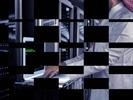Paul Holmes 11 Dec 2006 // 12:00AM GMT
Italian food company Barilla and Danish toymaker LEGO enjoy the best corporate reputations in the world, while American energy services company and defense contractor Halliburton has the worst, according to a new study of 30,000 consumers worldwide conducted by Reputation Institute.
“Barilla and LEGO have become icons because they have managed their corporate reputation in a systematic and holistic manner, balancing the interests of all stakeholders,” says Charles Fombrun, executive director of Reputation Institute, a private consulting and research firm. “They have earned trust, respect and admiration through all their actions over time, not just clever branding campaigns.”
The survey is based on the Reputation Institute’s RepTrak methodology, a measure of corporate reputation calculated by averaging perceptions of trust, esteem, admiration and good feeling obtained from a representative sample of local respondents who are familiar with the company. Scores range from a low of 0 to a high of 100.
The top tier of the RepTrak 200, originally published in Forbes magazine, consists of 15 companies with Pulse scores above 80—companies that have the strongest reputations—and is dominated by European companies. Only two each are from the U.S. (Kraft and Johnson & Johnson) and Asia (Toyota and Samsung). The 11 remaining companies are from Western Europe, and include familiar corporate names like Lufthansa (Germany), IKEA (Sweden), Michelin (France), and Philips (Netherlands).
In the U.S., Kraft Foods and J&J were joined in the top 10 corporate reputations by Pepsico, Disney, Home Depot, 3M, Kroger, Target, Procter & Gamble, and Deere.
In the U.K., Tesco topped the list of the top reputations, followed by Marks & Spencer, Motability, Sainsbury, Diageo, Wm. Morrison Supermarkets, GlaxoSmithKline, Unilever, Ladbrokes, and Vodafone.
In the overall survey, European companies took 33 of the top 50 spots. American companies took six. Of all companies measured globally, 12 percent of the European companies made it to the top 50 versus 6 percent to 7 percent of companies from North America, Asia and South Africa.
In surveying the reputations of the world’s 600 largest companies, the twin themes of food and children stand out, says Fombrun. In addition to Barilla and Kraft, food companies scoring well included Ferrero (Italy), Migros (Switzerland), REMA 1000 (Norway) and Woolworth’s (Australia). Companies with strong links to children include Lego and Johnson & Johnson.
Consumer electronics (Korea’s Samsung, and Dutch giant Philips), retail stores (Sweden’s IKEA and Australia’s Woolworth’s), and automotive products (Japan’s Toyota, France’s Michelin) also received high ratings from consumers.
The research shows that people act based on feelings. They are more likely to buy the products of companies they trust, to work for the organizations they respect, and to recommend companies they like.
Says Fombrun: “It’s important for companies to understand how much share of mind they have with consumers. This study sheds light on just how much or how little consumers really respect, trust and admire large, national companies. High awareness alone does not secure consumer trust, but visibility and familiarity do play an important part in building corporate reputation.”
Top Global Reputations
1. Barilla Holding Italy
2. LEGO Holding Denmark
3. Deutsche Lufthansa Germany
4. IKEA International Sweden
5. Michelin France
6. Toyota Motor Corp. Japan
7. AP Moller-Maersk Denmark
8. Ferrero Italy
9. Samsung Electronics South Korea
10. Kraft Foods U.S.
11. Danfoss Denmark
12. AKER Norway
13. Johnson & Johnson U.S.
14. Philip Electronics Netherlands
15. Migros Cooperatives Switzerland
16. Reitangruppen Norway
17. Tesco U.K.
18. BMW Germany
19. Honda Motor Japan
20. Tata Group India


































.jpg)

















